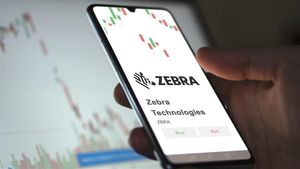Vizient, Inc. released its latest Medical Device Tech Watch, examining care models for cardiac arrhythmia, methods for improving colorectal cancer screening rates and how optimizing surgical tray standardization can reduce costs and improve operational efficiencies. Access Medical Device Tech Watch.
“This edition of Tech Watch explores a variety of topics, including emerging artificial intelligence technologies and efficiencies in the operating room,” said Doug Beinborn, associate principal, Vizient. “Throughout the publication, we surface new medical devices and methods to improve health outcomes and reduce costs for healthcare providers and ultimately, their patients.”
Featured articles include:
How will the increasing prevalence of dysrhythmia (arrhythmia) and new technologies impact your electrophysiology program? — Atrial fibrillation (AFib) is the most common arrhythmia and is estimated to impact over 12 million people in the U.S. by 2030, according to the Centers for Disease Control and Prevention. AFib death rate as the primary or a contributing cause of death has also been on the rise for over two decades. Organizations can optimize their electrophysiology program (EP) by maintaining a dedicated lab or labs for EP procedures and staffing according to Heart Rhythm Society guidelines. When advanced practice providers operate at the top of their license, electrophysiologists are freed to see new patients and spend more time in the procedural lab.
Colorectal cancer screening awareness, access and alternatives aimed at improving outcomes — As the fourth most prevalent form of cancer in the U.S., and second most deadly, colorectal cancer (CRC) screening continues to gain attention from both the industry and medical societies. Routine screening, previously started at age 50, has been expanded to begin at age 45 due to more new cases being diagnosed in younger patients. Sg2, a Vizient company, forecasts a 25% increase in screenings over the next 10 years. One of the keys to improving CRC screening rates is access, which can be expanded by adopting alternative screening methods, such as artificial intelligence for real-time, computer-aided detection.
Optimizing surgical tray standardization to reduce costs and improve operational efficiencies — When configured properly, surgical instrument trays equip clinical staff with the minimum instruments required to perform the highest number of procedures within a specialty. Vizient conducted a tray standardization initiative with a member-provider, identifying ways to reduce costs and improve efficiency without impacting clinicians or patient care. This article outlines the initiative’s findings and process improvements, which included reducing expenses for sterilization and purchasing and providing lighter trays that are safer to handle and transport.
Tech Watch delivers data-driven insights on trends and dynamics affecting healthcare, providing insights that drive innovation in care delivery. View past issues of Medical Device Tech Watch.
About Vizient, Inc.
Vizient, Inc., the nation’s largest health care performance improvement company, serves more than 60% of the nation’s acute care providers, which includes 97% of the nation’s academic medical centers, and more than 25% of the non-acute market. Vizient provides expertise, analytics and advisory services, as well as a contract portfolio that represents more than $130 billion in annual purchasing volume. Vizient’s solutions and services improve the delivery of high-value care by aligning cost, quality and market performance. Headquartered in Irving, Texas, Vizient has offices throughout the United States. Learn more at www.vizientinc.com.
View source version on businesswire.com: https://www.businesswire.com/news/home/20230413005158/en/
Contacts
Donna Ledbetter
(972) 830-6321
donna.ledbetter@vizientinc.com






